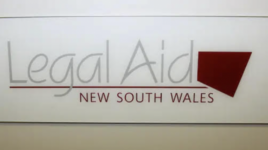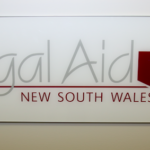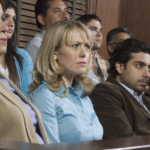The Right to Legal Representation in Serious Criminal Cases

A group of religious adherents who are facing serious criminal charges over the death of an eight-year old girl in Queensland have refused to engage legal representation.
The case raises important questions around the right to a fair trial, whether such people are entitled to government-funded legal assistance and what will happen if they continue to refuse help from criminal defence lawyers.
The story so far
The 14 adults, ranging in age from 19 to 66 years, were charged last year over the death of Elizabeth Rose Struhs, with police alleging that they denied the little girl life-saving insulin medication for several days prior to her death.
All fourteen belong to a religious group who allegedly stayed together and prayed and sang as Elizabeth took her last breaths, instead of contacting critical medical care.
Charged with murder, torture and neglect
The girl’s parents have both been charged with murder and torture and failure to provide the necessities of life. They have each been in custody for 16 months. After their original court appearance both refused legal representation and therefore did not apply for bail.
The other adults who were with Elizabeth in the days preceding, and the day of her death, are also facing a range of serious charges. They have been in custody for about 10 months, also refusing legal representation.
After a court appearance in Queensland last week, Justice Martin Burns told the Deputy Director of Public Prosecutions that the case must move as quickly as possible.
Refusal to accept legal representation
Considering that the members of group are insistent upon representing themselves at trial, arrangements have been made with corrective services for them to be able to confer to prepare.
In Queensland, as in New South Wales, having a lawyer represent you in court is not compulsory. Anyone can represent themselves whether they face a simple or very serious charges.
Murder, torture and neglect are exceptionally serious offences, and if found guilty, Elizabeth’s parents face the prospect of decades behind bars.
Legal representation is still available to the group, as trial date has not yet been set, and this would be most likely provided through the Legal Aid Commission.
Right to legal representation in serious criminal cases
Indeed, the highest court in the land, the High Court of Australia, made clear in the 1992 case of Dietrich v The Queen that those charged with serious criminal offences – such as those prosecuted by way of a jury trial in the higher courts – have a right to competent legal representation unless there are exceptional circumstances which prevent this.
That case further set down that a trial for a serious criminal case will need to be adjourned if, through no fault of his or her own, a defendant is not able to obtain competent legal representation, whether privately or through a legal aid grant.
Legal Aid
Legal Aid is administered on a state and territory basis and its criminal law practice assists people charged with criminal offences appearing before all courts – that is, the Local Court, Children’s Court, District Court, Supreme Court, Court of Criminal Appeal and the High Court.
The provision of legal aid services via in-house lawyers (known as ‘legal aid lawyers’) and by assigning legal aid cases to private law firms is aimed at ensuring access to justice for all Australians.
In the context of the criminal law, defendants are meant to have a right to a fair trial, and that includes competent professional legal advice.
Anyone under financial duress, or on welfare is able to apply for Legal Aid. Recently Australia’s most notorious tax fraudsters involved in the Plutus Payroll scheme which scammed the ATO out of more than $100m received Legal Aid.
Eligibility criteria
However, Legal Aid can refuse an application if you don’t meet the eligibility criteria, and also under specific circumstances.
In 2016 Victorian Legal Aid refused aid for an appeal by Adrian Bayley.
Bayley was convicted in 2013 of the rape and murder of Jill Meagher – a horrific crime that shocked Australia. He was sentenced to a non-parole period of 35 years in prison. He received Legal Aid for his defence and also for three subsequence defences he mounted while in prison against other rape charges.
He was granted leave by the Court of Appeal to try to have one of these convictions overturned.
However, for the matter of the appeal, Victoria Legal Aid refused funding.
Legal Aid justified the decision at the time, determining on the balance of probabilities that Bayley’s high chances of success in winning the appeal, and therefore reducing his sentence, would undermine public confidence in Victorian Legal Aid if further funding was granted. Bayley did win the appeal.
Even so, at the time, the decision was considered highly controversial. Legal Aid’s decision was eventually overturned by the Supreme Court.
Equitable access to justice and the right to a fair trial
While many people might feel that Adrian Bailey did not deserve Legal Aid after pleading guilty to the rape and murder of Jill Meagher, it raises an important point: Access to justice requires that everyone is able to participate in legal processes.
The justice process, and indeed democracy, don’t work when decisions to provide funding are based on a “character test” or whether the alleged crime is deemed “socially acceptable.”
It is of considerable concern to the presiding Judge Martin Burns that the individuals charged over the death of Elizabeth Struths, have so far, failed to accept legal options made available to them.
Certainly, it would be advisable to be represented in court by a professional who can not only to navigate the court process, but to put forward a credible, planned defence against the criminal charges.
If the group continues to decide not to have legal representation, and therefore represent themselves at trial, then it will undoubtedly slow down the proceedings, with some onus on Judge Martin Burns to explain aspects of each step of the process to the defendants as the trial proceeds.
But at the end of the day, a person cannot be forced to accept legal assistance and has a right to defend themselves in court if they wish to do so.







